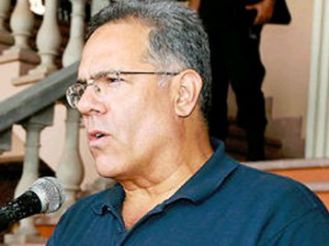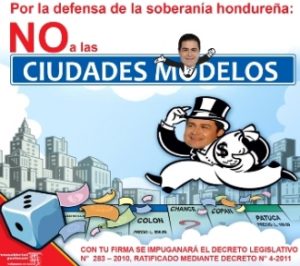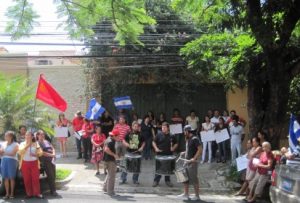Politics
New Honduran “Anti-Terrorism” Law is More of the Same
On November 17th, the National Congress in Honduras passed its very own Anti-Terrorism Law. The new legislation, called the Alvarez Law, was presented to Congress by Oscar Alvarez, Minister of Security under Pepe Lobo Sosa, leader of the coup regime. Alvarez is the nephew of General Gustavo Alvarez Martinez, leader of the so-called 316 Battalion death squad and the chief of the National Police Force in Honduras in the 1980’s.
This new law, which was discussed and approved behind closed doors in the late evening and early morning hours, is being touted by the government as tool for stopping funding for terrorist activities in Honduras by specifically focusing on remittances and funding of Non-Governmental Organizations. Alvarez reportedly told Congress that “funds for subversive group come into the country as remittances and through NGOs.” The law therefore stipulates that any NGO that receives over $2000 must report that money to the government as well as if they purchase or receive donations of vehicles or equipment. He also reportedly said that NGOs should use their funding to improve the quality of life and not “for protests that destabilize the country.” As part of his efforts to push through the law, Alvarez is also reported to have said that Honduras could be faced with sanctions from organizations like UN were the “anti-terrorism” law not approved.
Jari Dixon Herrera, former official in the Ministry of Public Works said that he considers this law to be directly intended to target resistance to the coup regime because “firstly, in Honduras there are no acts of terrorism and, secondly, because you have to remember that when the current Minister of Security Oscar Alvarez assumed his government post he said there was a need to eliminate the National Resistance Front.” Therefore, local leaders and members of the Honduran social movement see this law as a clear and direct attack against their organizing work. In fact, the same day the Alvarez law was passed, 5 campesinos were killed and 3 were injured by the Honduran army in an on-going “anti-terrorism” operation against campesinos in the Bajo Aguán.
If this sounds familiar, that’s because it is.
In October of 2006 the Salvadoran Legislative Assembly passed its version of an anti-terrorism law called Decree #108, the “Special Law against Acts of Terrorism.” The law essentially created a mechanism to crack down on social organizing while disguising itself in language referring to the fight against terrorists and subversive activity.
The government of right-wing president Tony Saca wasted no time in applying the law for the crackdown. On July 7th, 2009 four members of CRIPDES, the Association for the Development for El Salvador, were pulled over and arrested as they were on their way to participate in a public forum about the government’s water regulation proposal. Meanwhile, police in full riot gear used tear gas against the participants gathering outside the forum and arrested ten more people. 13 of the activists were jailed for a month and tried as terrorists under the new law with the Attorney General’s office pushing for the maximum sentence of 40 years in jail. After months of an intense legal battle, protests throughout the country and international outcry from across the globe, the charges against the so-called “Suchitoto 13” were dropped. However, the law is still in effect with language that can effectively be used to ban protests and financing for groups the Salvadoran government deems as “dangerous”.
The Salvadoran and the Honduran anti-terrorism laws are both heavily influenced by the U.S. Patriot Act. The Patriot Act, passed in 2003 in the wake of September 11th, allows the government to search without warrants or notice, tap phones, revoke visas, seize documents and information and even monitor internet use and library records, all in the name of protecting the country and fighting terrorism. In the years since the law’s implementation the ACLU has recorded numerous abuses of the civil liberties of U.S. citizens by the FBI and other governmental entities, which use the Patriot Act as their justification.
Given the role of the U.S. government in the Honduran coup and Salvadoran politics, it is clear that the U.S. has continued to support the “cookie-cutter” approach to policy, urging countries to copy effective U.S. legislation like the Patriot Act. As one Honduran resistance blogger writes, “Let’s be realistic. Our politicians have never been capable of creating something new. Our laws have always been a copy and paste from other laws that themselves have been copied from others. And looking at laws against terrorism the route is clear in order to figure out where they come from.”
-For more information about the Honduras Anti-Terrorism law click here, here, here and here.
-For more information about the Suchitoto Case click here and for information about the Salvadoran Anti-Terrorism law click here.
-For more information about the U.S. Patriot Act click here and here



